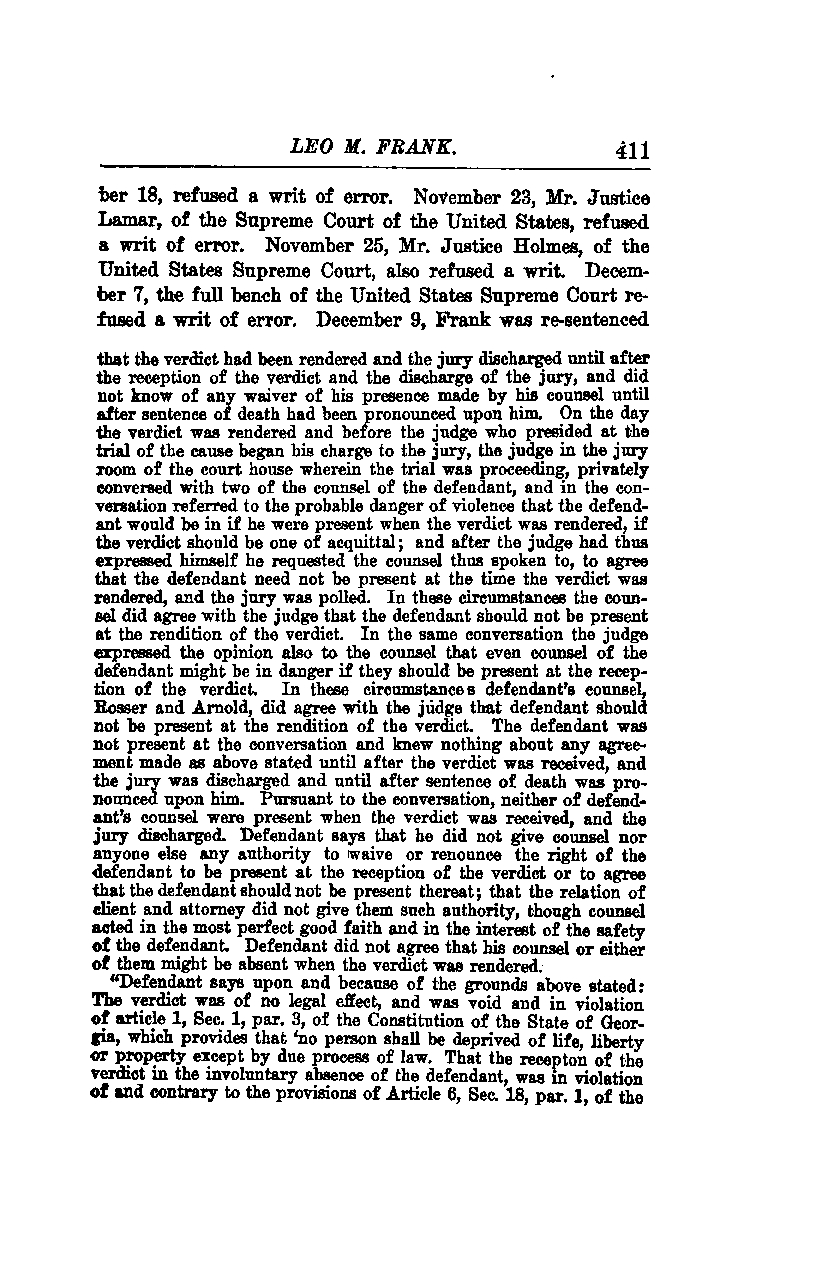
Here is the translated text as follows:
LEO M. FRANK, 41
On October 18, a writ of error was refused. On November 23, Mr. Justice Lamar of the Supreme Court of the United States refused a writ of error. On November 25, Mr. Justice Holmes of the United States Supreme Court also refused a writ. On December 7, the full bench of the United States Supreme Court refused a writ of error. On December 9, Frank was re-sentenced.
Frank stated that he was not present when the verdict was rendered and the jury discharged. He did not know of any waiver of his presence made by his counsel until after the sentence of death had been pronounced upon him. On the day the verdict was rendered, before the judge who presided at the trial began his charge to the jury, the judge privately conversed with two of the defendant's counsel in the jury room of the courthouse where the trial was proceeding. In this conversation, the judge referred to the probable danger of violence that the defendant would be in if he were present when the verdict was rendered, particularly if the verdict should be one of acquittal. After expressing these concerns, the judge requested the counsel to agree that the defendant need not be present at the time the verdict was rendered and the jury was polled. Under these circumstances, the counsel agreed with the judge that the defendant should not be present at the rendition of the verdict. In the same conversation, the judge also expressed the opinion that even the counsel of the defendant might be in danger if they were present at the reception of the verdict. Consequently, defendant's counsel, Rosser and Arnold, agreed with the judge that the defendant should not be present at the rendition of the verdict. The defendant was not present at the conversation and knew nothing about any agreement made as stated above until after the verdict was received, the jury was discharged, and the sentence of death was pronounced upon him. Pursuant to the conversation, neither of the defendant's counsel were present when the verdict was received and the jury discharged. The defendant stated that he did not give counsel nor anyone else any authority to waive or renounce his right to be present at the reception of the verdict or to agree that he should not be present; that the relationship of client and attorney did not give them such authority, though counsel acted in the most perfect good faith and in the interest of the safety of the defendant. The defendant did not agree that his counsel or either of them might be absent when the verdict was rendered.
The defendant argued that, based on the grounds stated above, the verdict was of no legal effect, void, and in violation of Article 1, Section 1, Paragraph 3, of the Constitution of the State of Georgia, which provides that "no person shall be deprived of life, liberty, or property except by due process of law." He further contended that the reception of the verdict in his involuntary absence was in violation of and contrary to the provisions of Article 6, Section 18, Paragraph 1, of the Constitution.
---